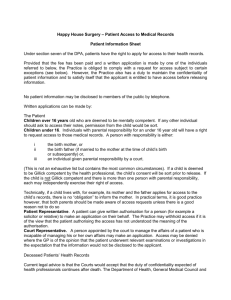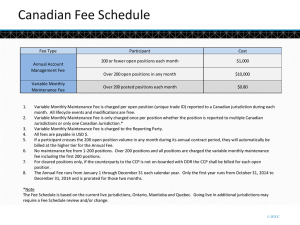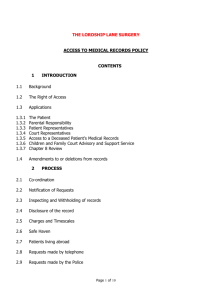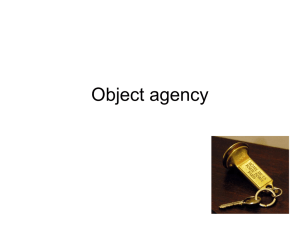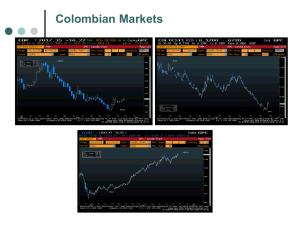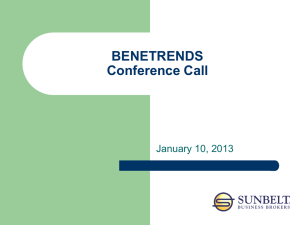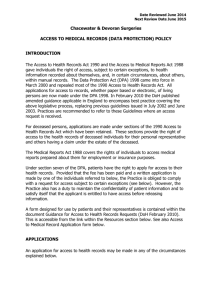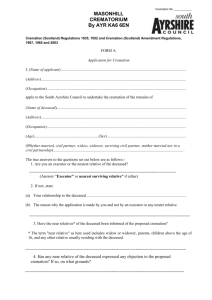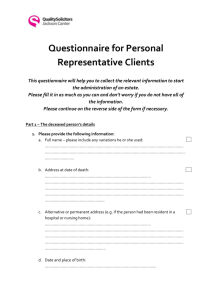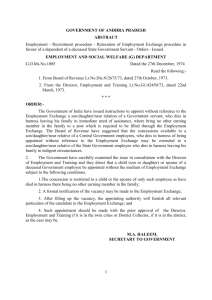Access to Medical Records-2013
advertisement
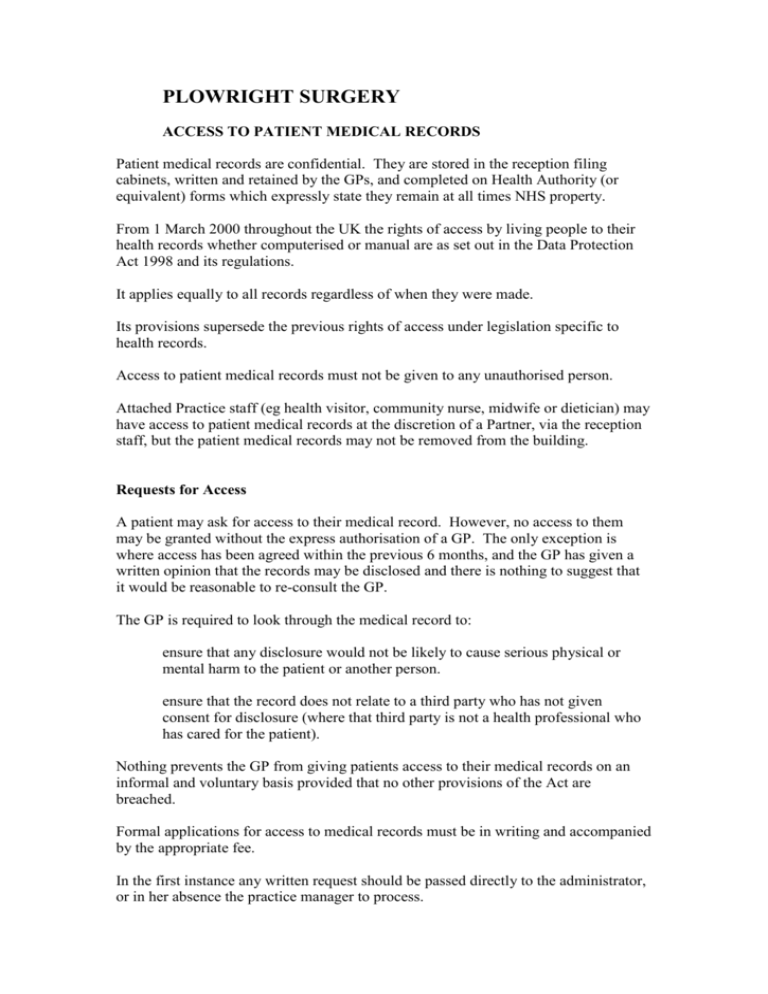
PLOWRIGHT SURGERY ACCESS TO PATIENT MEDICAL RECORDS Patient medical records are confidential. They are stored in the reception filing cabinets, written and retained by the GPs, and completed on Health Authority (or equivalent) forms which expressly state they remain at all times NHS property. From 1 March 2000 throughout the UK the rights of access by living people to their health records whether computerised or manual are as set out in the Data Protection Act 1998 and its regulations. It applies equally to all records regardless of when they were made. Its provisions supersede the previous rights of access under legislation specific to health records. Access to patient medical records must not be given to any unauthorised person. Attached Practice staff (eg health visitor, community nurse, midwife or dietician) may have access to patient medical records at the discretion of a Partner, via the reception staff, but the patient medical records may not be removed from the building. Requests for Access A patient may ask for access to their medical record. However, no access to them may be granted without the express authorisation of a GP. The only exception is where access has been agreed within the previous 6 months, and the GP has given a written opinion that the records may be disclosed and there is nothing to suggest that it would be reasonable to re-consult the GP. The GP is required to look through the medical record to: ensure that any disclosure would not be likely to cause serious physical or mental harm to the patient or another person. ensure that the record does not relate to a third party who has not given consent for disclosure (where that third party is not a health professional who has cared for the patient). Nothing prevents the GP from giving patients access to their medical records on an informal and voluntary basis provided that no other provisions of the Act are breached. Formal applications for access to medical records must be in writing and accompanied by the appropriate fee. In the first instance any written request should be passed directly to the administrator, or in her absence the practice manager to process. Fees Access must be given promptly, and in any event within 40 days of receipt of the fee and request. If the application does not include sufficient information to identify the person making the request or to locate the information, the information should be sought promptly and the 40-day period begins when it is supplied. The maximum fees which may be charged are prescribed by the SofS and are: To Provide Access and Copies Records held totally on computer. £10.00 Records held in part on computer and in part manually (We will assess the time factor and bill as appropriate.) £50.00 Records held totally manually (We will assess the time factor and bill as appropriate.) £50.00 To Allow Patients to Read their Records Records held totally on computer. £10.00 Records held on computer and manually. £10.00 Records held totally manually (unless the records have been added to in the last 40 days when NO CHARGE can be made.) £10.00 Third Parties Where records contain information which relates to an identifiable third party, who is a health professional who has compiled or contributed to the medical record there is no requirement to contact them before disclosure. Changes to the Medical Record Patients, who may have been sent a copy of their medical record, may ask the Practice to make certain corrections. The GP then has 2 possible courses of action. If the GP is satisfied that the record is inaccurate the GP may make the necessary corrections. On the other hand if the GP is not satisfied that the record is inaccurate, the GP must make a note of the applicant’s comments about the accuracy at the appropriate point in the health record. In either case the GP must provide the applicant with a copy of the correction or notes made in the patient’s records. No fee may be charged for this service. Access to Records of Deceased Patients The Data Protection Act 1998 does not cover the records of deceased patients. They are contained in the Access to Health Records Act 1990 and are summarised below: Any person with a claim arising from the death of a patient has aright of access to information covered by the Act and directly relevant to that claim. Information that is not directly relevant to the claim may not be released. Thus a personal representative or executor can access information to benefit the deceased’s estate, as can an individual who was a dependant of the deceased and who has a claim relating to that dependency which has arisen from the death. The Access to Health Records Act 1990 covers manual health records made since 1 November 1991. Access must also be given to information recorded before these dates if this is necessary to make any later part of the records intelligible. There are certain exemptions to this right, and information may be withheld if: It identifies a 3rd party without that person’s consent unless that person is a health professional who has cared for the patient. In the opinion of the relevant health professional, it is likely to cause serious harm to somebody’s physical or mental health. The patient gave it in the past on the understanding that it would be kept confidential. Similarly no results of examinations or investigations which the patient thought would be confidential at the time they were carried out can be disclosed. No information at all can be revealed if the patient requested non-disclosure. If the Health Authority holds the records it will usually ask the patients last registered GP for advice about disclosure. Once the person holding the records is satisfied that the person is entitled to it, access must then be given within specified time limits. Where the application concerns access to records, any of which were made in the 40-day period immediately preceding the date of application, access must be given within 21 days; otherwise within 40 days. An access fee of up to £10.00 where all the records were made more than 40 days before the date of application, otherwise no charge. Where photocopies are supplied a reasonable charge may be made, but not exceeding the cost of making the copies, and doctors may be required to justify the fee charged. Any access given to records before 1 November 1991, which are not covered by the statutory right of access, may be charged for at the doctor’s discretion in accordance with BMA recommended rates. September 2013

